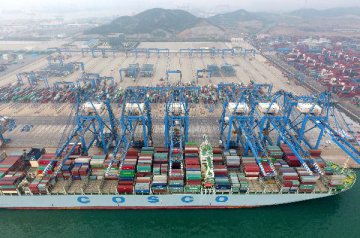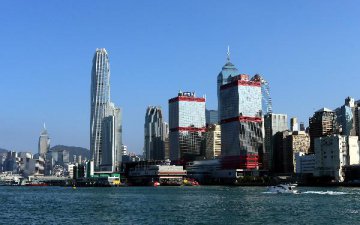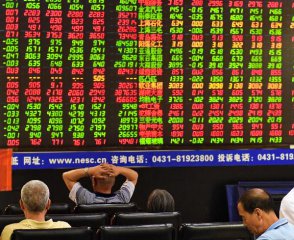Adelaide Brighton Ltd. (ABC), APA Group (APA), Central Petroleum Limited (CPT);
Keenly anticipated reforms in gas pipeline regulations designed to help tackle the east coast gas crisis will do little to wrest power away from pipeline owners and only condemn manufacturers to a future of high prices as they do not represent genuine reforms called for by the national competition watchdog, according to industry veteran Richard Cottee, managing director of Central Petroleum. The company facing a controversial $87 million takeover bid from Macquarie Group, halted its shares from trading so the impact could be assessed.
AGL Energy Limited (AGL);
AGL Energy’s $295 million proposal for a new fast-start power plant in South Australia has triggered calls for the state government to abandon its own plan to build a $360 million gas generator to be owned by taxpayers.But South Australian Energy Minister Tom Koutsantonis said on Wednesday that the taxpayer-funded plant would still be going ahead.‘‘It is basically an insurance policy that South Australians need,’’ Mr Koutsantonis said, indicating that, while the AGL investment was welcome, it wouldn’t change the state government’s own plans as it tries to bring more reliability into a fragile grid.The 210-megawatt Barker Inlet plant, the plans for which came to light late on Tuesday, will replace part of AGL’s ageing Torrens Island generator in outer Adelaide and is expected to be fully operational in early 2019.
Bendigo and Adelaide Bank Limited (BEN);
Bendigo Bank’s joint partner in the Homesafe business says the equity release product for seniors will continue to outperform the market even if price growth slows. Peter Szabo, the actuary who owns a half stake in Homesafe, said its focus on ‘‘land-rich’’ properties in the growing Sydney and Melbourne residential markets ensured it would maintain the 3-percentage-point premium it has returned over the physical residential market over the past 10 years. Homesafe, which signed its first contract in 2005, now has stakes in more than 3000 properties – 60 per cent of them in Melbourne and 40 per cent in Sydney – and has made a 9 per cent annual return over the past 10 years, he said. ‘‘We have a model to invest in residential property, which, because of the way we’re invested, can generate premium returns,’’ he told The Australian Financial Review. ‘‘What we’re expecting is that the margin over the underlying property market will continue. If the overall property market drops down, our overall return will also drop down, but if the overall drops to 2-3 per cent, we’ll get 5-6 per cent.’’
Vocus Group Limited (VOC);
Kohlberg Kravis Roberts & Co has struck the first blow in what is likely to be a long-running battle for Vocus Group with a number of other private equity firms running the ruler over the telecommunications provider. Sources said KKR’s $3.50 per share offer was likely to spark further bids from private equity players with Affinity Equity Partners also considering a tilt. The Financial Review’s Street Talk column revealed that the Vocus’ board had been approached on Tuesday night by KKR. Private equity giant Kohlberg Kravis Roberts & Co has fired the first salvo in what is likely to be the beginning of a long-running battle for Vocus Group, with a number of other private equity firms running the ruler over the telecommunications provider. Sources said KKR’s $3.50 per share offer for Vocus is expected to spark further bids from private equity. The Australian Financial Review can reveal Affinity Equity Partners, the Asia-based firm that owns a stake in Virgin Australia’s Velocity Frequent Flyer and the rebadged Ticketek Australia TEG, is one of the firms considering a tilt. At this stage, Affinity has not engaged external advisers, although sources said Macquarie Capital was well-placed to secure a buy-side mandate should Affinity’s plans progress. TPG Capital and The Carlyle Group have previously run an eye over the company but sources said a bid from either was unlikely at this stage.
Wesfarmers Limited (WES);
Wesfarmers is banking on its 4000-odd stores and diverse portfolio to defend itself against new competitors, including Amazon, as it battles the toughest retail conditions in 30 years. Wesfarmers is banking on its 4000-odd bricks-and-mortar stores and diverse portfolio to defend itself against new competitors, including Amazon, as it battles the toughest retail conditions in 30 years.Outgoing Wesfarmers chief executive Richard Goyder says the $47 billion conglomerate is confident of maintaining its long-term record of delivering above-average returns to shareholders and has downplayed concerns the group is particularly vulnerable to Amazon or overly exposed to cautious consumers. ‘‘Wesfarmers has a strong record in operating businesses in dynamic environments, environments where new competitors come in, and they have,’’ Mr Goyder told analysts and investors at the conglomerate’s annual strategy briefing in Sydney on Wednesday. ‘‘Every day we’re dealing with new competitive threats, new regulatory threats,’’ Mr Goyder said, citing Bunnings and Coles’ ability to grow in the face of competition from Woolworths’ failed Masters venture and European discounter Ald.
Woolworths Limited (WOW);
Coles has upped the ante on Woolworths by tripling its investment into cutting prices and improving service in a bid to protect its market share, increasing the likelihood of a fullblown grocery price war. Coles managing director John Durkan indicated on Wednesday the food and liquor retailer had invested about $195 million net of cost savings in the June half into reducing prices and improving service in stores – three times that in the December quarter. ‘‘Half-year underlying investment was about $65 million – in the second half it’s probably triple that level,’’ Mr Durkan told investors at Wesfarmers’ annual strategy briefing. The investment had been made ahead of anticipated cost savings, suggesting that Coles’ margins were likely to come under pressure again in the June half after falling in the first half. ‘‘[The investment] remains today as strong as it did in Q3. It’s a high level of investment but cost savings will come out over time,’’ Mr Durkan said. Wesfarmers shares fell almost 3 per cent as investors factored in the likely hit to Coles’ earnings. Most of the $64 million or 6.8 per cent fall in Coles’ first-half profit – the first fall since Coles was acquired by Wesfarmers in 2007 – was due to investment into cutting grocery prices in the December quarter.
(Source: AIMS)






















Latest comments